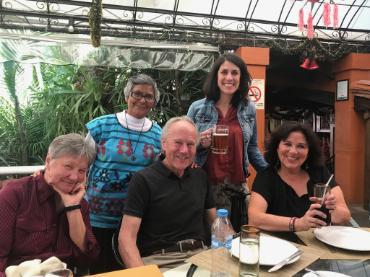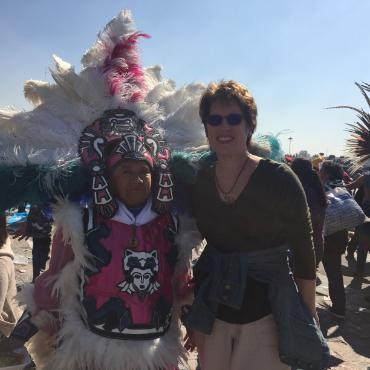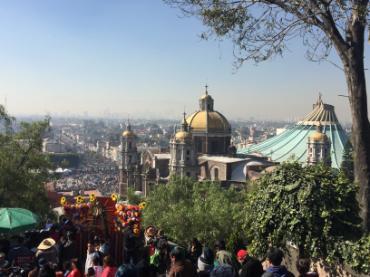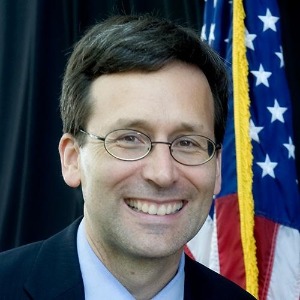A Seminar and Immersion for Seattle U Faculty/Staff and Community Members
By Deborah Anastasi Black, ‘00
Each December for the past 15 years, Jeanette Rodriguez, PhD, Theology & Religious Studies, has led a group of Seattle University faculty, staff and community members from outside campus on a journey to Cuernavaca, Mexico to participate in the Guadalupe Faith and Hospitality Experience. Hosted by an order of Mexican Benedictine nuns who serve at the Guadalupe Center, this social justice encounter addresses the need to “build bridges of understanding between north and south, rich and poor, and differing cultures and religions.” The 10-day trip concludes with participation in the pilgrimage to the Basilica of Our Lady of Guadalupe in Mexico City. One of the most important pilgrimage sites of Catholicism, the Basilica is visited by 18 to 20 million people on December 12th each year, Guadalupe’s feast day.
I was thrilled when notified that I would be one of eight participants in the 2017 immersion experience. Following is an abbreviated account of the trip.
Of the many gifts that our hearts received throughout this transformational journey, the first and one of the most indelible, was our time with the 12 Sisters at the Guadalupe Center. Through our daily participation in prayer and song, shared meals and evenings spent together, reflecting on the day’s experiences, we were able to connect with the Sisters in a way that transcended our limited language capabilities. When verbal translation was needed, however, Dr. Rodriguez and Sister Reyna mastered the task.
We visited two Children’s Projects, both built, physically and programmatically, with funds raised by North Americans who had spent time in Cuernavaca, had seen the impoverished conditions in which children and their families were living, and decided to make a difference. The benefactors provide training and community members, primarily parents, run the projects with the help of volunteers from abroad. Children receive academic instruction, extra-curricular activities, healthy food, a caring environment and hope for a better future.
The Project sites are surrounded by dwellings, some quite dilapidated, where the children live with their families. In l’Estacion, a severely impoverished urban barrio (neighborhood), we were invited into one of these homes. It was a made of cinderblocks and had no bathroom or refrigeration. The parents and their two boys, ages five and nine, shared a single bed. The front door and window coverings were pieces of fabric. Asked if she feels safe in l’Estacion, the mother, Blanca, said no, explaining that children in the barrio had been kidnapped by traffickers and there is a lot of gang violence. She was grateful that her boys could attend the l’Estacion Children’s Project, and hoped that they would one day have better lives.
During our visit to the rural home of Ignacio Torres, aka “Nacho,” an Indigenous man and member of the National Indigenous Congress (CNI), we learned about the history of the Indigenous people from the oppression suffered at the hands of the Spanish Conquistadors to the present-day impact of NAFTA. Nacho also told us of the Nahua people’s spirituality, the importance of seeds and the land, the seven directions and corresponding colors. He took us to a sacred place in the forest and performed an Indigenous religious ceremony. At one point, as we prayed, the wind suddenly kicked-up with gusto, snapping tree branches. It died as quickly as it had come. Was God speaking to us? It was a truly magical moment. Dr. Ted Fortier, an anthropologist and our trip co-facilitator, provided context and interpretation of the hieroglyphics that appeared on rock walls framing this sacred location.
At the end of our time in Cuernavaca, we said good-bye and received a special blessing from the Sisters. We traveled by van to Mexico City on December 11th, where we stayed at the Mother House for the Benedictine Order. The house was within walking distance of the Basilica of Our Lady of Guadalupe.
Thousands of pilgrims had already gathered in reverence to Guadalupe, the patroness of Mexico. Some had walked from miles away; some had come on their knees. Others had come on bicycles, standing in the back of pick-up trucks or by car. Many carried statues and pictures of Guadalupe to be blessed. They camped in the large square in front of the Basilica, which houses Juan Diego’s tilma (cloak) on which Guadalupe imprinted an image of herself in 1531. This is the miracle that the pilgrims come to see every year on her feast day. Masses are performed in the Basilica by priests from all around Mexico, and choirs perform all day and all night. At midnight the pilgrims sing to Guadalupe, and the next day Indigenous people from all over Mexico dance in the square wearing their traditional dress. It is an event to behold.
I returned from the Guadalupe Faith/Hospitality Experience with three distinct impressions. One, is the contrast between the warmth, hospitality and graciousness in which our group was received by the most marginalized and impoverished of Mexico’s people and the way that Dreamers and undocumented migrants are treated in the United States. The second is the Mexican people’s will to survive and the power of community in lifting children up and giving them a shot at a better future. Third, a draw (calling?) that I have felt toward working with children in developing countries is indeed real.
The Guadalupe Faith and Hospitality Experience is open to Seattle University alumni. If you are interested in participating in the December 2018 trip or have questions, contact Prof. Jeanette Rodriguez, jrodrigu@seattleu.edu.




